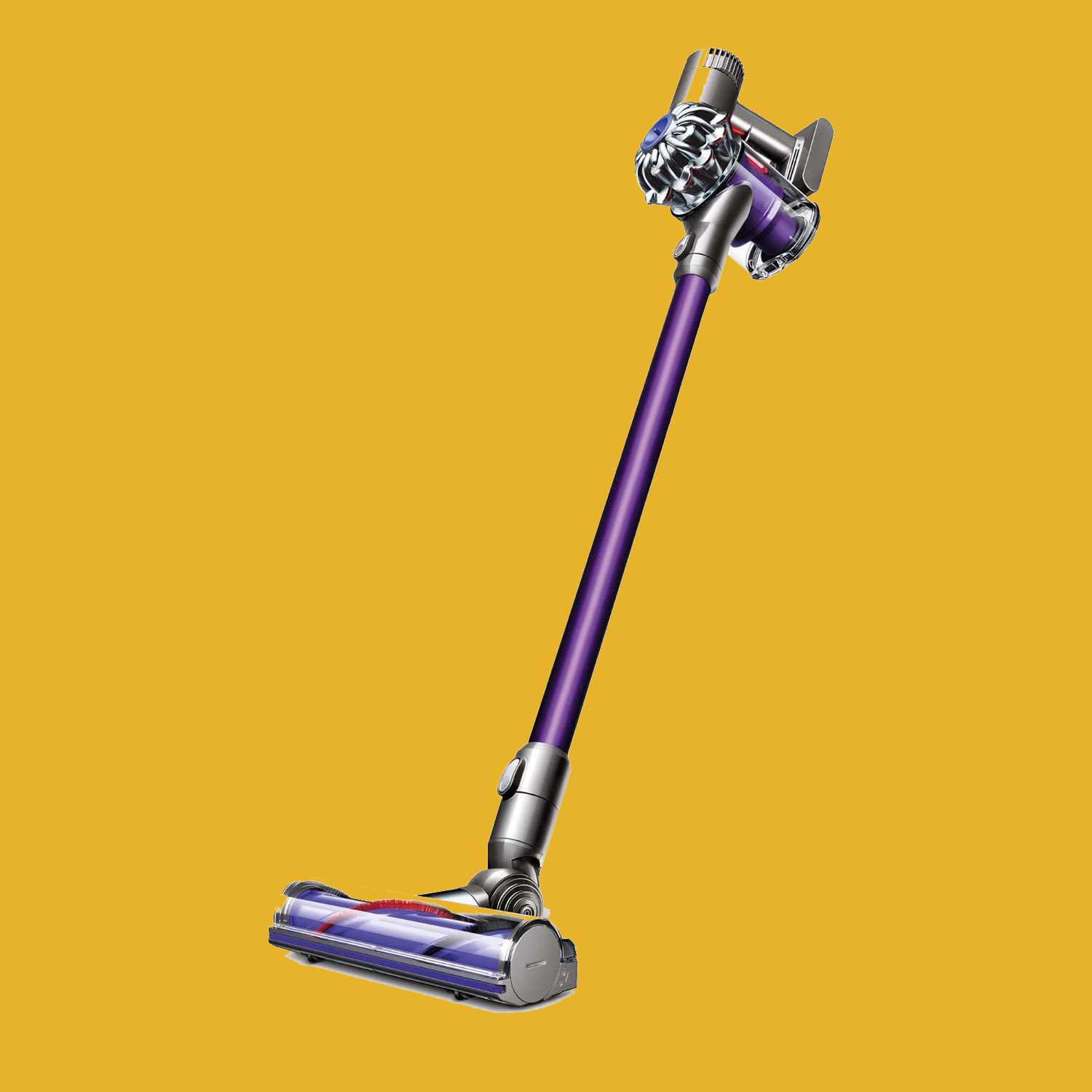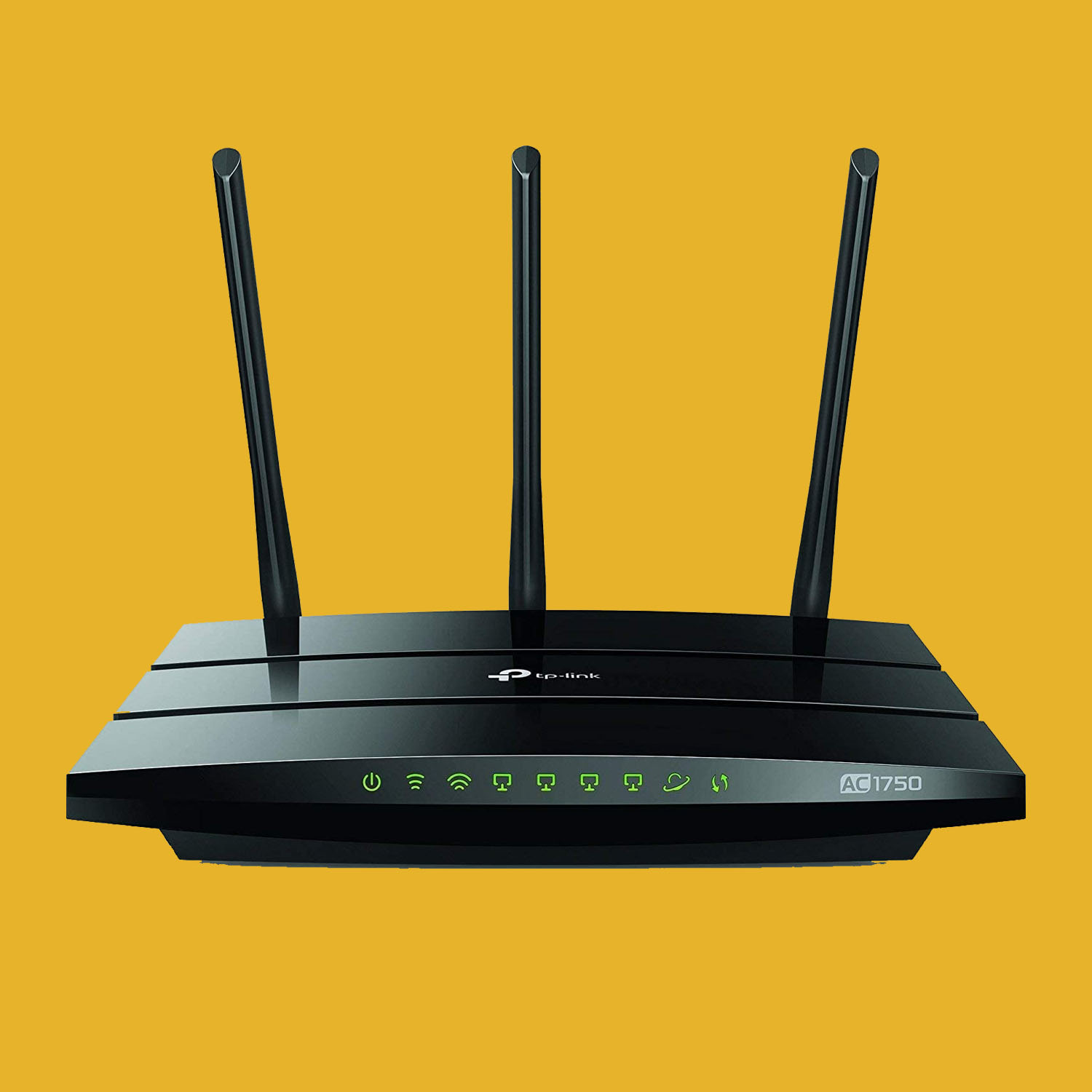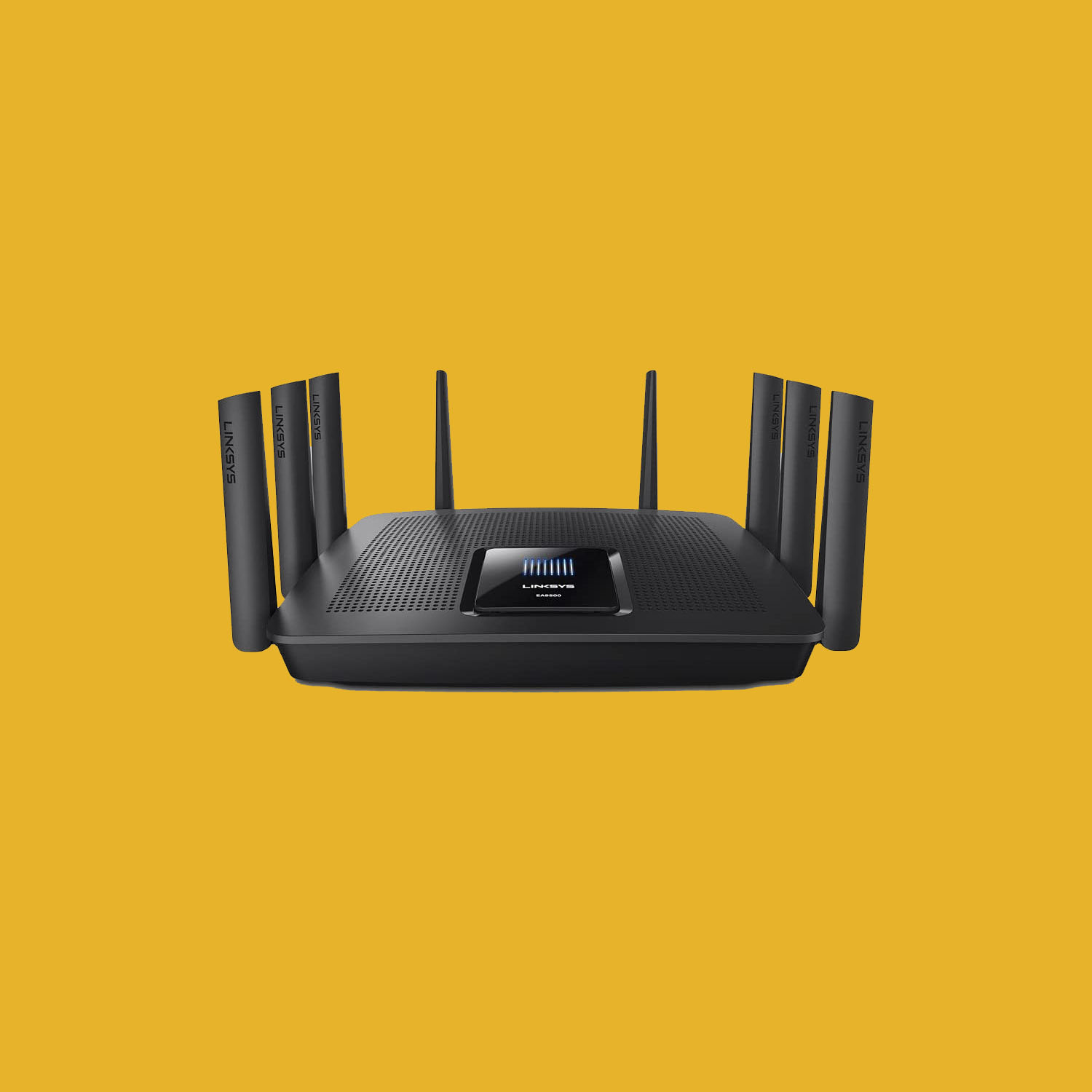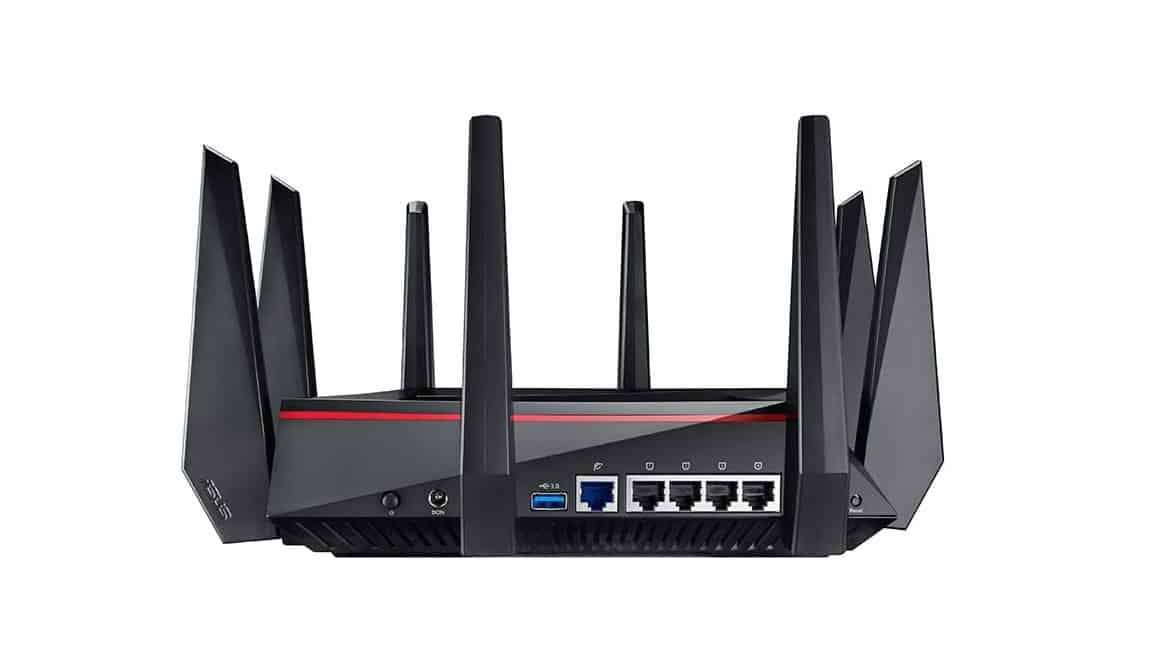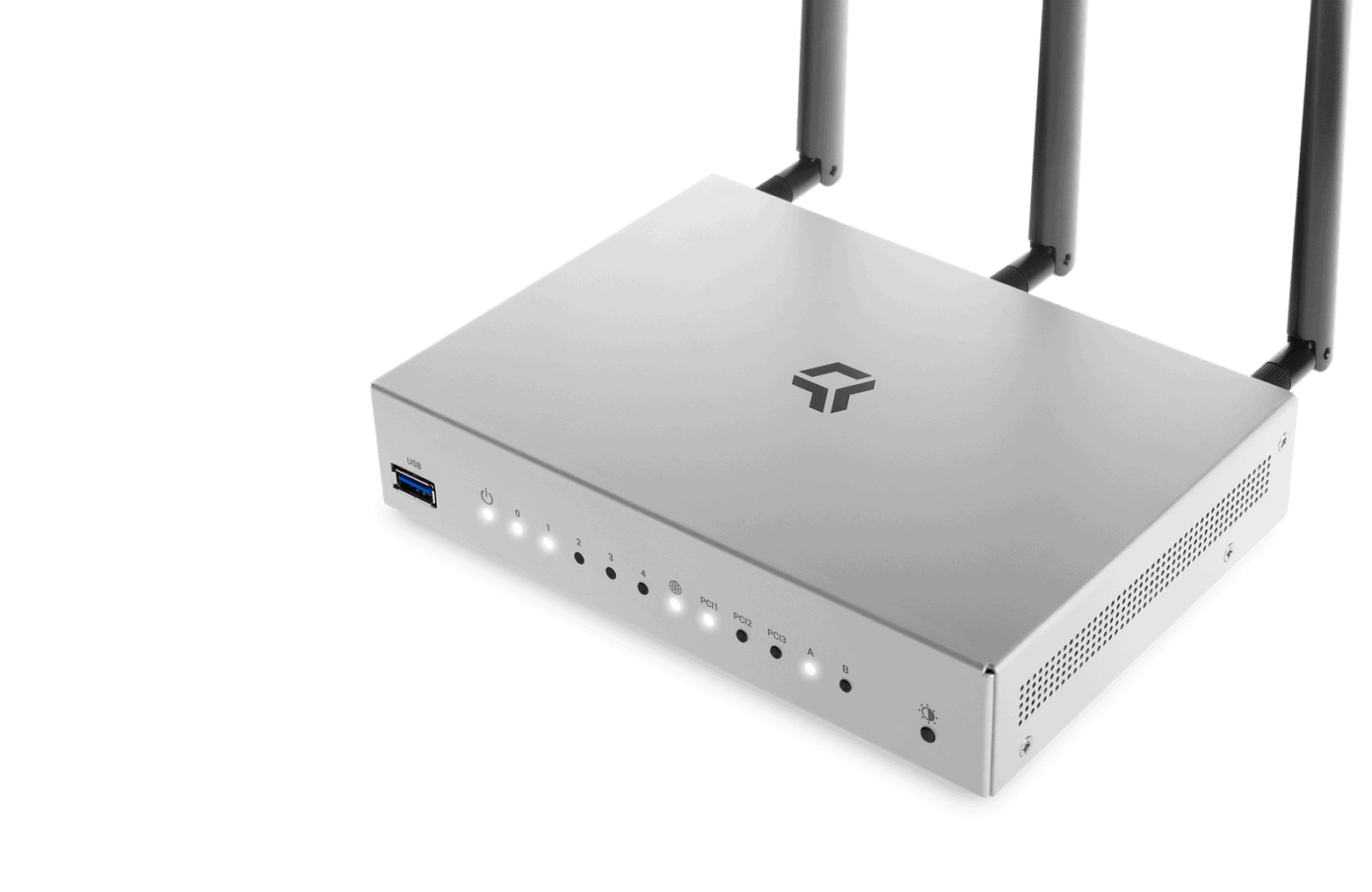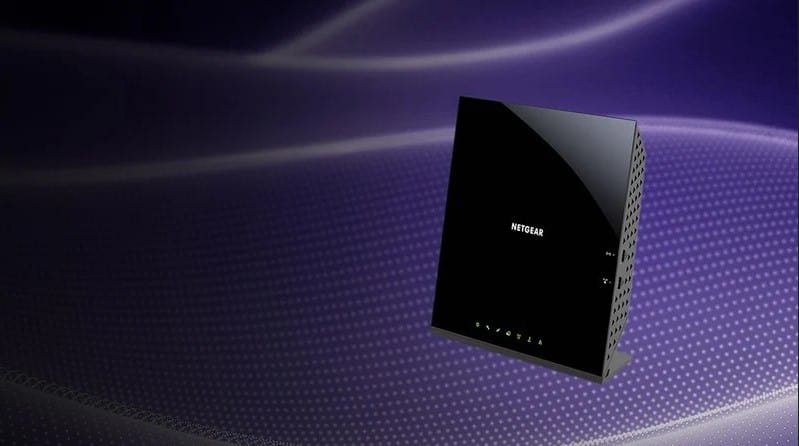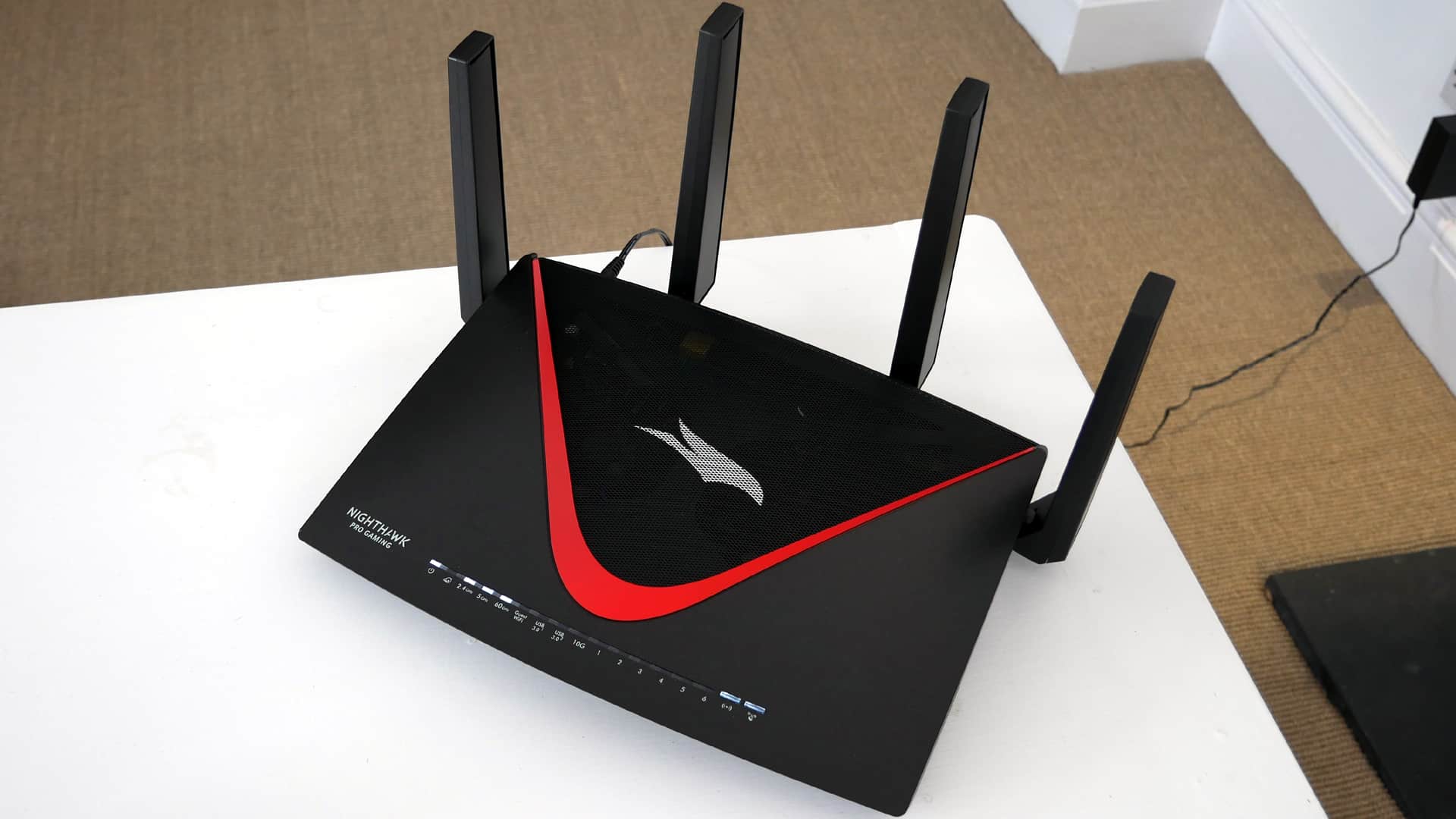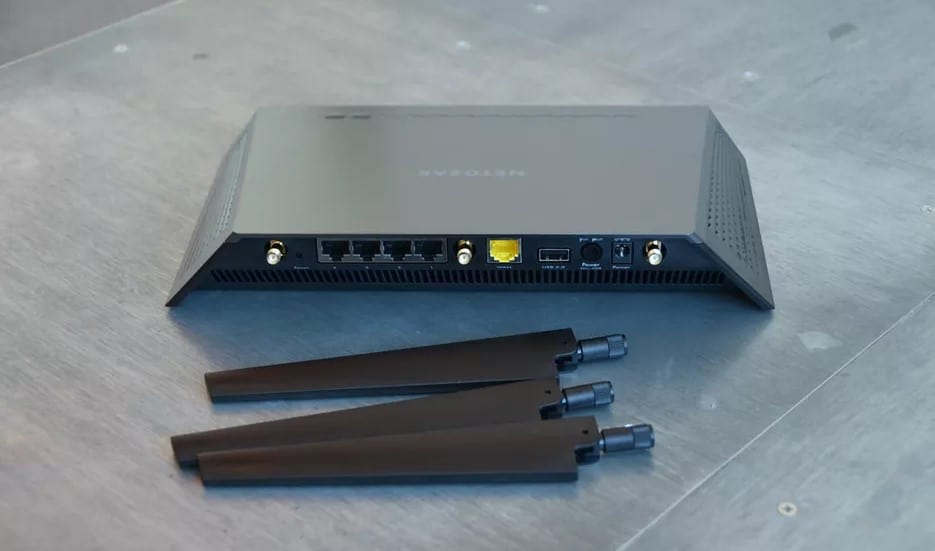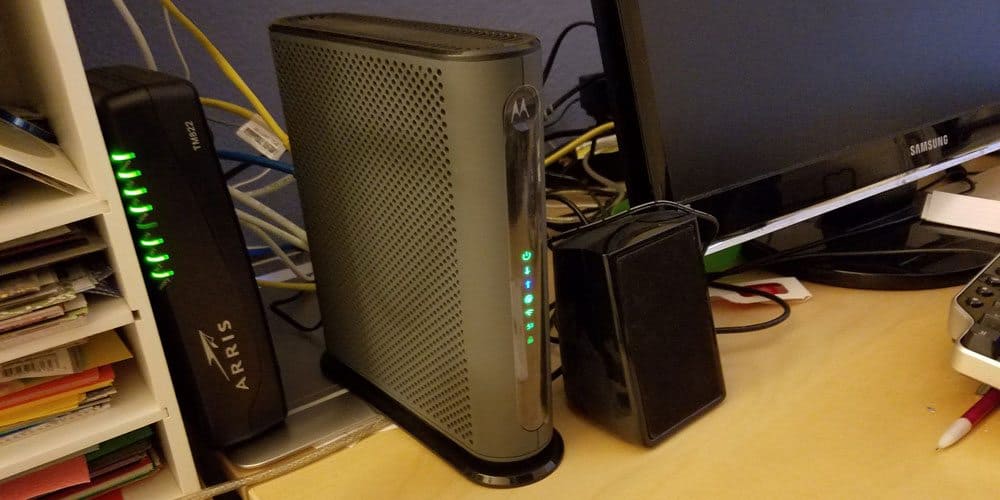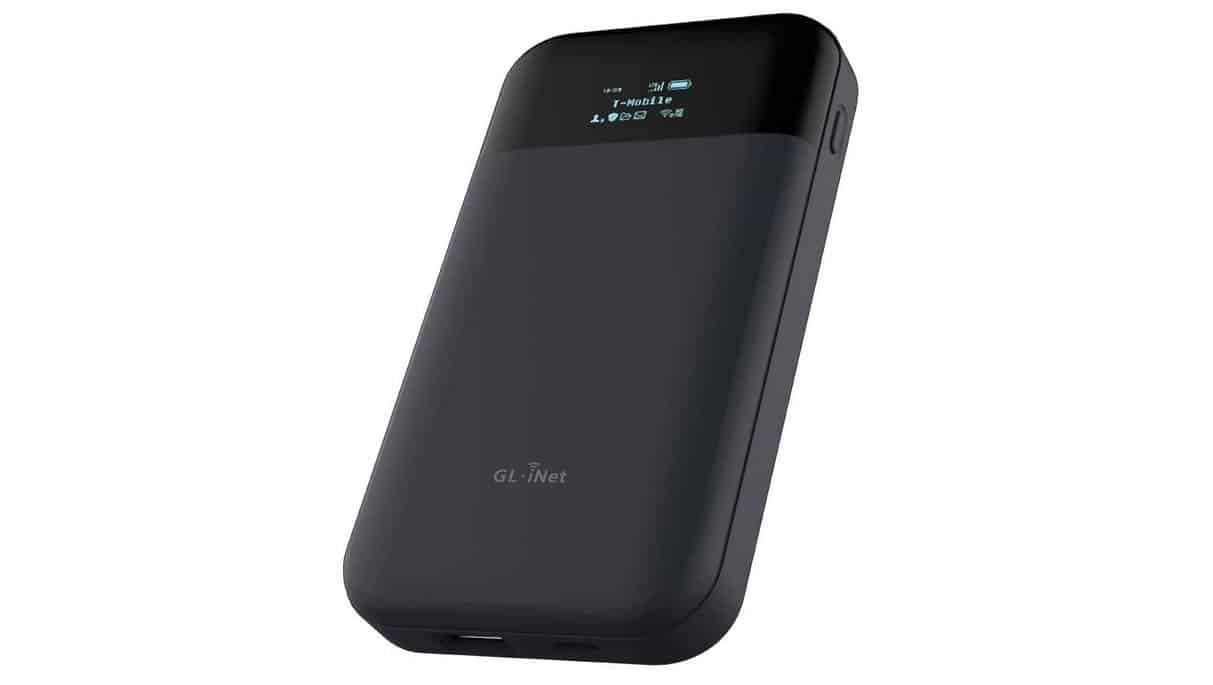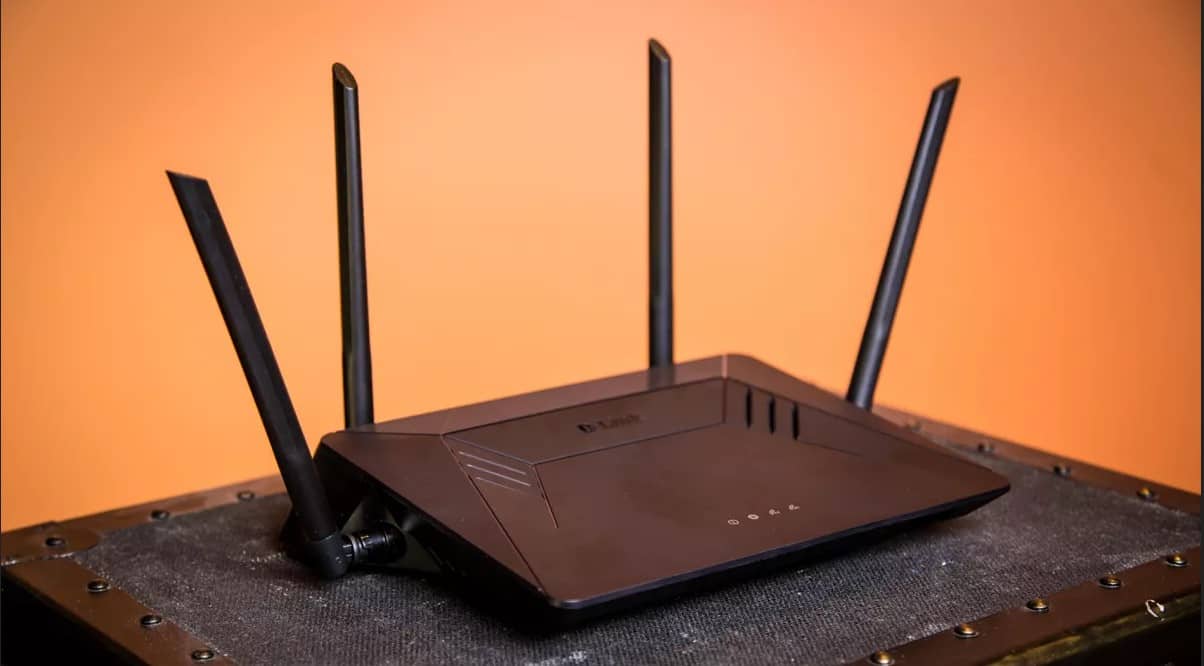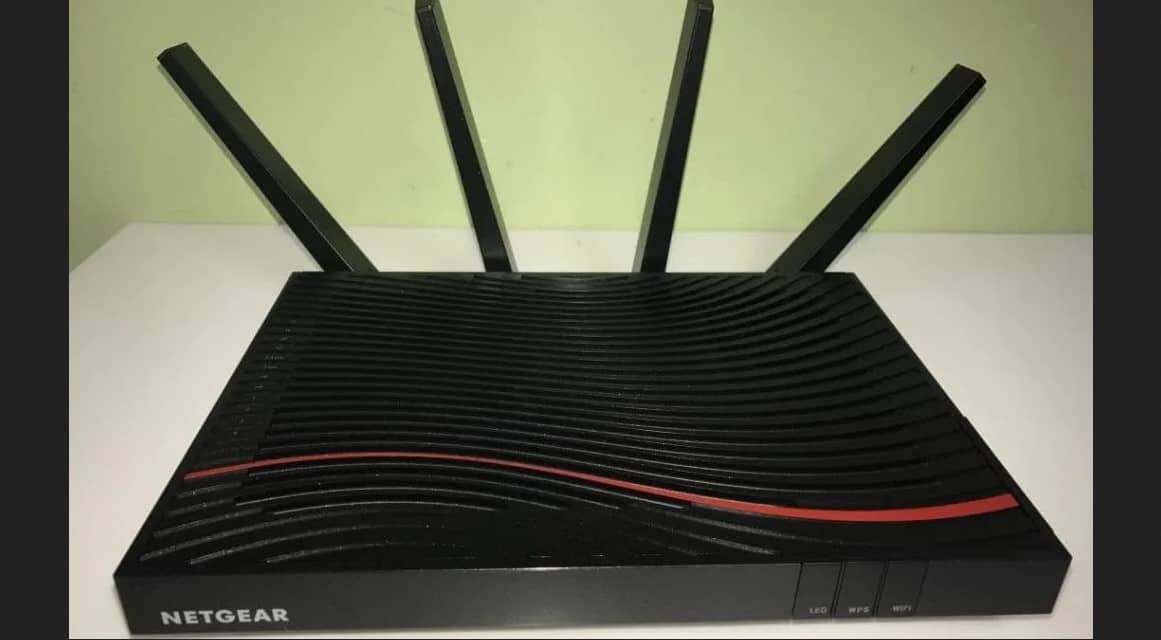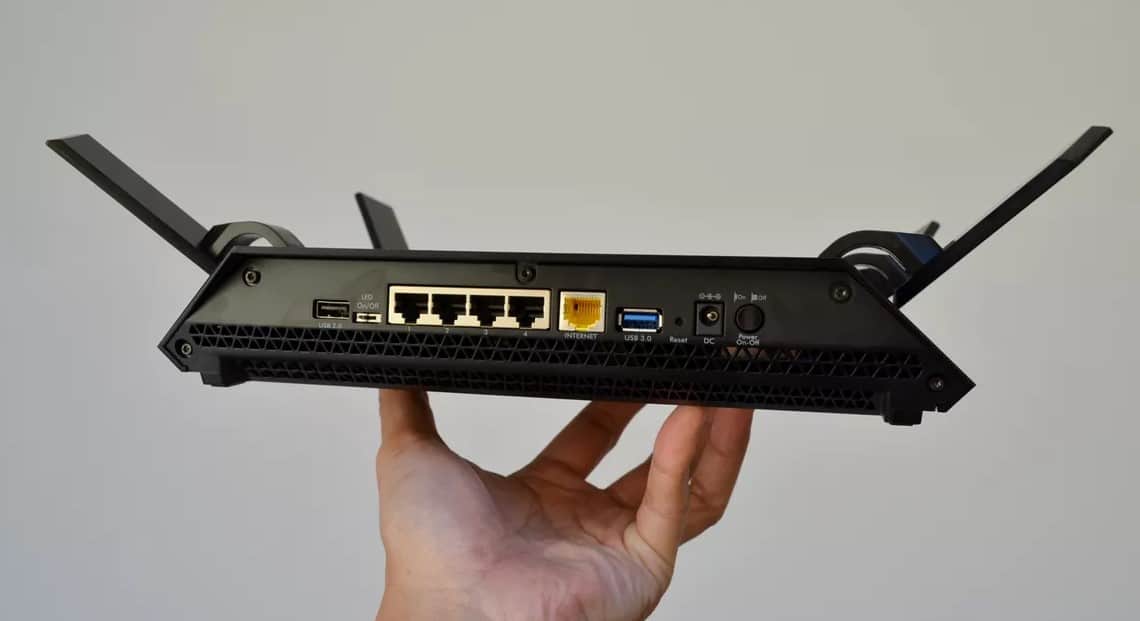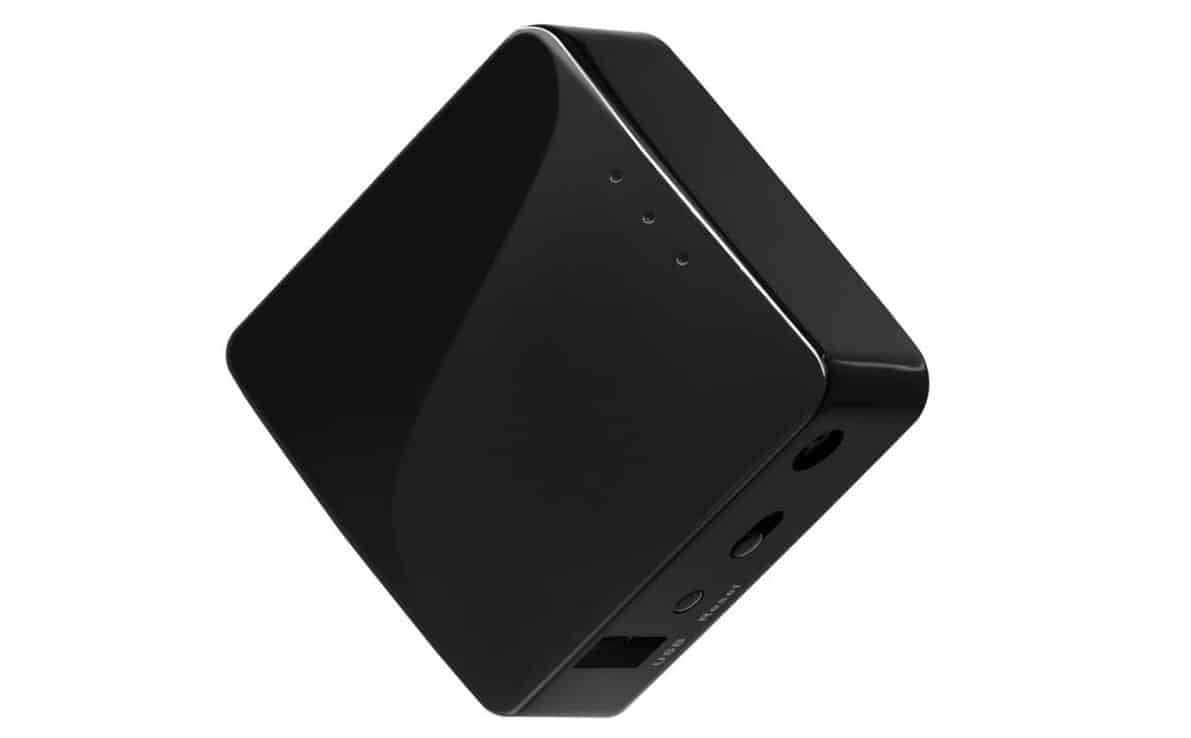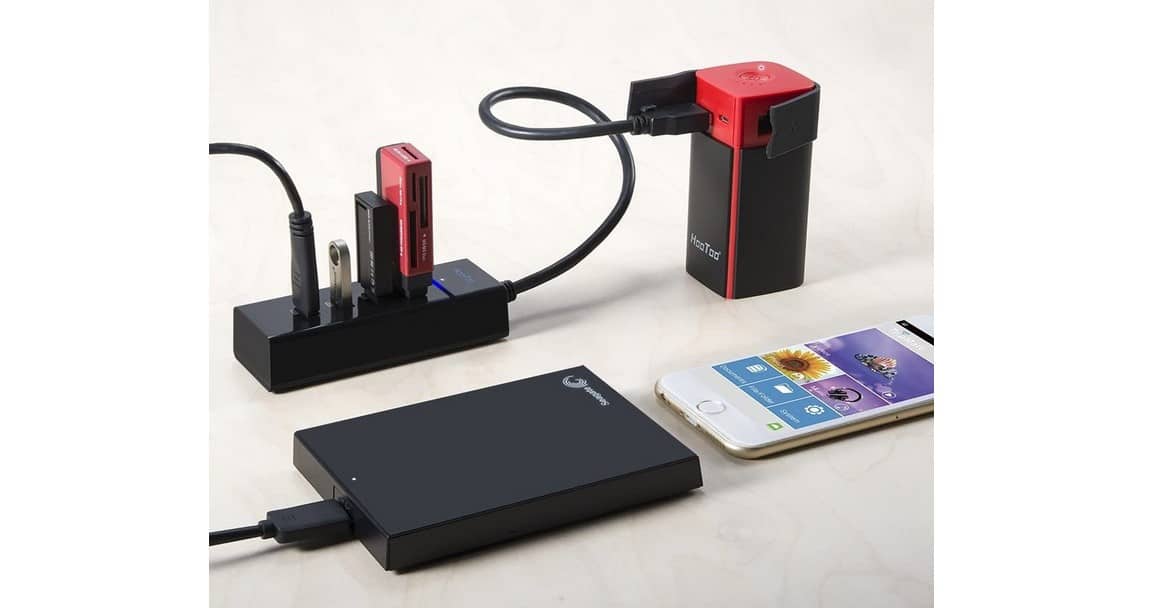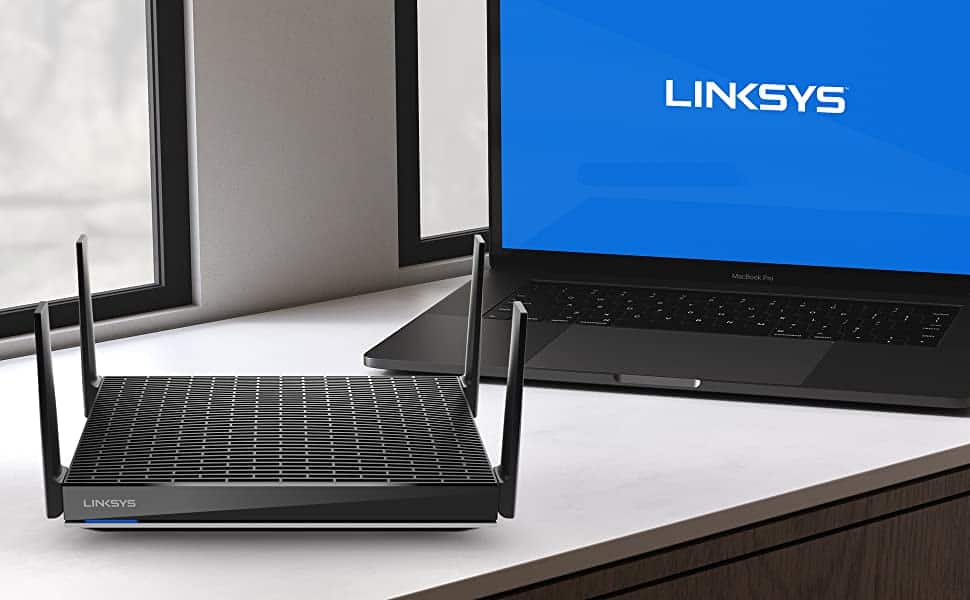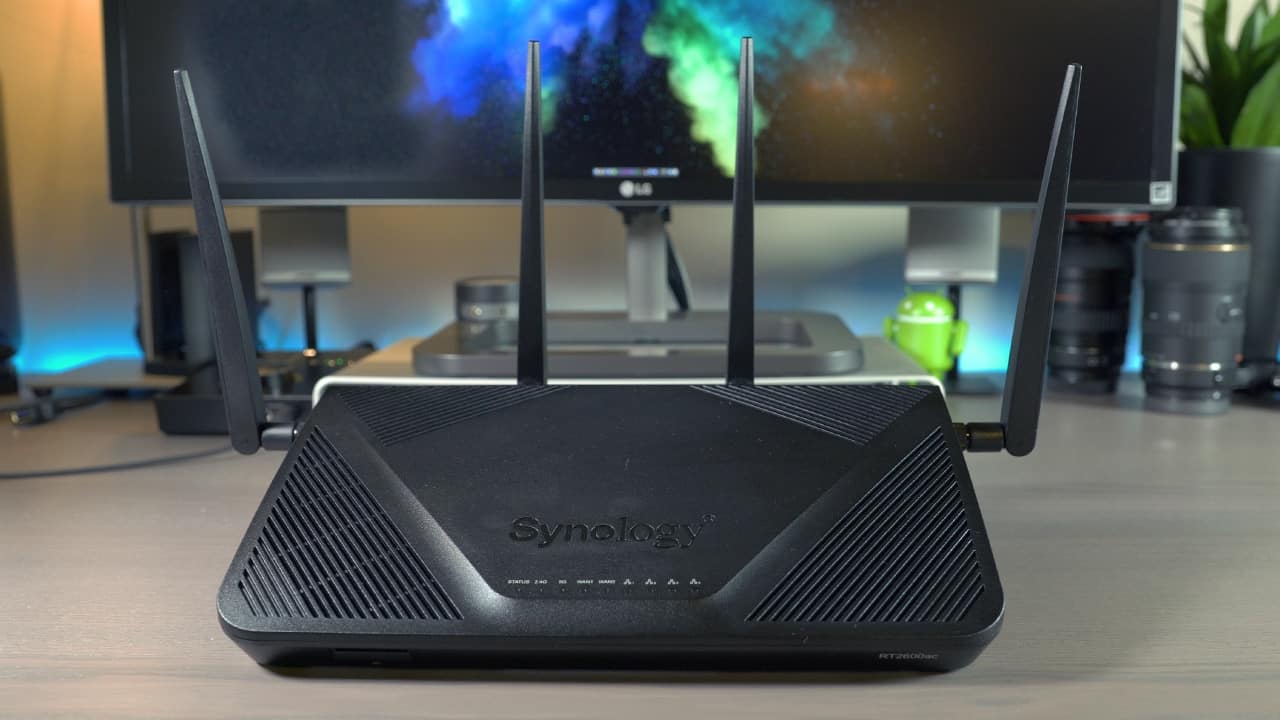What are the features that make the best router for CenturyLink? For starters, these networking devices are the best routers for use with CenturyLink because they are either DSL or fiber compatible. On top of that, they are fast, reliable, and long-lasting, making them an excellent choice for either home or business use.
If you just started with CenturyLink, or you’re looking to stop renting a CenturyLink modem router combo, then these routers are the best choice for you. Plus, depending on the model you purchase, you’ll get plenty of customizability and built-in security to keep your network safe.
Keep on reading to learn more about the best routers for CenturyLink, the features that make the best models stand out, and how you can find one to fit your needs.
Top Routers for CenturyLink
#1 Actiontec CenturyLink C1900A Wireless VDSL2 IPTV Router
Award: TOP PICK
WHY WE LIKE IT: It is great for high-speed connectivity and allows for up to four Ethernet connections through its ports. It also features good security options to give users complete control over its firewall and comes with parental control so that parents can set limits to their kid’s Internet use.
- Has a vast range of security features
- Compact size
- Decent port selection
- Not designed for use with a fiber optic cable
The Actiontec C1900A wireless router is CenturyLink’s own dual-band frequency router with a rapid data transfer rate of up to 1gbps. The router also has a decent port selection, featuring four Ethernet ports and one USB port for wired connectivity. It’ll allow for download speeds of up to 200mbps and upload speeds averaging up to 100mbps, and since it also features WPA, WPA2, and WEP protection, there shouldn’t be any worry of the devices connected to it getting hacked. However, it is not designed for use with a fiber optic cable.
The router can work on any VDSL or ADSL network, and since its firewall includes features such as parental control options, breach detection, or denial of service protection, owners will have a good level of control over a wide range of security features. Through its support for MIMO technology, all its connected devices will be able to maintain a strong level of connectivity that is independent of the activity going on with different connections.
#2 CenturyLink ZyXEL C2100Z Wireless Modem Router
Award: HONORABLE MENTION
WHY WE LIKE IT: It has a wide range of ports to choose from, and with a data transfer rate of up to 1.7gbps, it offers high-speed connectivity. It is also very easy to set up.
- Great port selection
- Very easy to set up
- Offers high speed connectivity
- Previous users have complained of needing to restart it often
The C2100Z wireless modem router from CenturyLink is a dual-band frequency router capable of delivering speeds of up to 1.7gbps over its 5GHz band and 300mbps over its 2.4GHz band. It supports the creation of up to four different WiFi networks, making it easy to quickly set up networks for guests or high traffic usage. The router also features a wide range of ports, including four Ethernet ports, one DSL port, two phone ports, and one USB port. However, there have been complaints from previous users of them needing to restart it every so often.
The router also features Beamforming technology that beams WiFi signals towards the direction of the connected devices for increased signal strength and Multi User-MIMO technology that ensures that all connected devices receive the same high speed and bandwidth regardless of data traffic. The router comes with a WPS button for easy setup and is also IPV6 ready.
#3 Netgear Nightawk AC1900 VDSL/ADSL Modem Router
Award: BEST FOR HIGH-SPEED CONNECTIVITY
WHY WE LIKE IT: It offers a data transfer rate of up to 1.9gbps, making it ideal for problem-free data-heavy tasks. It can also be managed remotely through the Netgear Genie app and allows for a personal cloud and VPN connection.
- Great for high speed connectivity
- Can be remotely managed through the Netgear Genie app
- Powerful processor for enhanced performance
- No support for voice or telephone services through DSL
The Netgear Nighthawk AC1900 is a VDSL/ADSL modem router that has been certified by CenturyLink and comes with a rapid data transfer rate of up to 1.9gbps. The router has a powerful dual-core processor for enhanced performance and features four Ethernet ports that users can use to connect their non-WiFI devices. It also sports two USB ports for media and file sharing, and since it supports ReadyShare technology, all devices connected to the router will be able to access the USB and its contents. Unfortunately, it does not support voice or telephone services through DSL.
The router also comes with a Beamforming+ technology for stronger connectivity, and on top of that, owners will also be able to manage it remotely through the Netgear Genie app. This app comes with features such as a Network map for monitoring all the connected devices, a traffic meter to track Internet usage, and parental control options for limiting Internet usage for kids.
#4 CenturyLink C2100T Prism TV Technicolor Modem Router
Award: BEST FOR PORT SELECTION
WHY WE LIKE IT: It is very easy to set up and has an expanded port selection that includes two phone ports, four Ethernet ports, and one DSL port. It also supports download speeds of up to 1gbps and boasts comprehensive coverage, making it ideal for large homes.
- Great port selection
- Supports VoIP connections
- Easy to set up
- Has a clunky design
The CenturyLink Prism Technicolor C2100T modem is one of the more popular choices from Technicolor’s line, as it is ideal for both fiber and LAN internet connections. It can deliver a data transfer rate of up to 300mbps and operates on a dual-band frequency network. The router features four Ethernet ports, one USB port, and two phone ports for VoIP. It also features dual Ethernet firewalls that allow it to quickly identify malicious content, and since it is also WPS enabled, it’ll be pretty easy to set up. However, some may not appreciate its clunky design.
The dual-band frequency router is also plug and play, so owners won’t have to spend much time with it during installation. It has got a robust firewall to prevent hackers and malware from gaining access to any connected devices, and like a lot of other routers in its category, it also comes with Beamforming technology for widespread coverage and increased signal strength.
#5 Zoom Telephonics 5792 ADSL WiFi/Modem Router
Award: BEST FOR MULTIPLE DEVICE CONNECTIONS
WHY WE LIKE IT: It can support the connection of up to 253 devices, making it ideal for light business use. It has an easy-to-navigate user interface and a data transfer rate of 150mbps.
- Great for connecting multiple devices
- Very easy to set up and install
- User friendly interface
- May not have the best coverage
The Zoom Telephonics WiFi modem router is an easy-to-install ADSL router with a decent data transfer rate of up to 150mbps. The router will work with CenturyLink and a host of other popular ADSL protocols and offer fast internet download speeds of up to 27mbps. It also quickly provides shared access and four Ethernet LAN ports for connecting non-WiFi devices. Still, some users have complained that it may not have the best range.
It has a user-friendly graphical interface that is easy to navigate and is also IPv6-ready. It also comes with QoS to assign more bandwidth to high-priority services, parental controls that allow users to limit internet usage per device and is very easy to install.
#6 TP-Link AX1800 Smart WiFi Router
Award: BEST FOR LARGE HOMES
WHY WE LIKE IT: It supports voice control and can be managed remotely through the Tether app. Thanks to its comprehensive coverage, it can support more than 40 devices at once and is ideal for large homes.
- Great coverage
- Handles over 40 connected devices
- Tether app allows for remote management
- Might need to be rebooted every day
The Archer AX21 from TP-Link is a top-tier WiFi 6 router that supports data transfer speeds of up to 1.8gbps. It can handle more than 40 device connections and can also be integrated with smart home hubs such as Amazon Alexa and Google Home for voice control. The router operates on a dual-band frequency class, so users will have the choice to opt for its 2.4GHz band for light, uninterrupted web browsing or its 5GHz band for seamless HD streaming and online gaming. However, some previous users have complained about rebooting it every day.
Setting it up is very easy to do through the Tether app. The app will allow them to monitor network activity and enact parental controls that can limit usage for particular devices or prevent access to specific URLs. The router also offers a decent range of ports for wired connectivity since it comes with four Ethernet ports and a USB port for media or file access. To guarantee reliable coverage, the router features four high-gain antennas that rely on Beamforming technology to focus its signals on the connected devices for a stable connection.
What Are Routers for CenturyLink?
A router for CenturyLink is a piece of networking hardware that connects to a modem and creates a wireless internet signal. This allows you to connect your other devices, like computers, gaming consoles, and tablets, to the internet through this wifi signal. The router interprets and manages all internet traffic passing to and from your devices.
These wireless routers are optimized to work with CenturyLink internet service.
Routers for CenturyLink vs Traditional Routers
CenturyLink routers are the same as traditional routers in nearly every aspect. They feature the same internal components and form factor and share the same overall functionality. Of course, there are some design differences between individual models and brands, which is to be expected.
So, how do CenturyLink routers differ from traditional routers? For starters, CenturyLink routers are made to be compatible with CenturyLink internet service, as their name suggests. This simply means these routers are compatible with either DSL or fiber optic internet, which are the two primary services CenturyLink offers.
You should also consider differences in features, performance, and security options between individual models. These differences come into play when you think about the exact needs of your home or office network.
How Routers for CenturyLink Work
Routers for CenturyLink offer the same functionality as all other wireless routers. First, they need to connect to a power source like a wall outlet and then to an internet connection through a CenturyLink modem. After everything is set up, the router will emit a wireless signal that other devices can use to gain internet access. These devices can also connect directly to the router through an Ethernet connection.
Once devices are connected, the CenturyLink router does what its name implies. It routes internet traffic to and from the devices. Depending on certain features, you may be able to configure the router, so it prioritizes traffic to certain devices over others.
Do You Really Need a Router for CenturyLink?
If you’re in the market for a new wireless router, you might be wondering if a CenturyLink router is best for you. If you’re a CenturyLink subscriber, then the choice is easy, and these routers are the best options for your needs. However, you can also use these routers with other ISPs, so if you see something that meets your needs but are with another provider, you can rest assured these options will still work for you.
Is a Router for CenturyLink Worth Buying?
- CenturyLink Is Your Internet Service Provider: The most obvious reason to purchase a CenturyLink router is if you pay for CenturyLink internet service. These routers are optimized for use with the CenturyLink network, meaning you’ll get the best experience in terms of speed, performance, and reliability.
- You Don’t Want to Rent a Router from CenturyLink: Most ISPs give you the option of renting a modem router combo from them for a monthly fee. This can be convenient, but it’s also expensive over the long run. If you want to purchase your own router to use instead of renting one from CenturyLink, then the routers in this guide are right for you.
- You Want Faster and More Reliable Performance: The best modem router combos for CenturyLink don’t always have the best performance, especially when compared to third-party alternatives. If you need faster speeds or more reliable performance, whether for online gaming or streaming, then these routers can help solve that need for you. If you need performance for VoIP systems, you should consider the best VoIP routers.
Why a Router for CenturyLink May Not Be For You
- CenturyLink Isn’t Your Internet Service Provider: While these routers work with most ISPs, they are most compatible with CenturyLink. If you’re with another service, you may want to consider different options, like the best router for Optimum.
- You Need a Portable Wireless Router: Routers for CenturyLink must be installed and used within your home or office space. If you’re looking for a more portable solution, then you’ll need to look at alternative options, like travel routers or mobile hotspots. These can provide you with on-the-go internet access.
- You Want the Convenience of Renting a Router: Renting a router from CenturyLink brings a certain level of convenience that you won’t find from purchasing your own. If you don’t want to research a router that will work seamlessly with your ISP, renting a CenturyLink router is better.
How Long Will a Router for CenturyLink Last?
When it comes to your CenturyLink router’s overall lifespan, you only need to worry about one thing: how fast it can’t keep up with current internet technology. Since wireless routers don’t feature any moving parts, they can theoretically keep running for decades. However, internet technology is constantly changing, meaning you’ll need to swap your router out for one with newer technology sooner than you might think.
According to networking pros like Network World, you should expect to get around four or five years of high-quality lifespan from your router before you need to replace it with something new. However, this lifespan could be shorter if you always want to stay caught up with the latest and greatest network technologies.
How to Choose a Router for CenturyLink
It’s essential to evaluate your specific networking needs before you start shopping for a new router. Look at your CenturyLink plan to determine what type of internet you have, as well as how fast it is. You should also consider what kind of customizability and security settings the router offers. Then, you can purchase a router that is compatible with those factors. This way, you can protect your data and devices from external threats.
Best Router for CenturyLink Key Factors to Consider
1. Should you buy a modem-router combo for CenturyLink?
One of the first decisions you’ll need to make is whether you need a modem router combo or not. If you were to rent network hardware from CenturyLink, you’d get a modem router combination. These can be incredibly convenient because they decrease the number of individual devices you need to create a WiFi signal in your home.
However, internet routers by themselves give you more flexibility in choosing the exact options you want the wireless device to feature. Plus, routers without built-in modems also offer more speed, connectivity options, and customizability.
2. What kind of speed and performance do you need to have?
Your wireless router is not responsible for creating fast internet speeds. Instead, it’s responsible for harnessing the speeds you get directly from CenturyLink. A router will never be able to give you more upload or download speed than what you pay for with your internet service provider.
As such, you’ll first need to consider what wifi speed you’re currently paying for at CenturyLink. Then, you’ll need to purchase a router that can handle those speeds at a minimum. We recommend purchasing a router that can handle higher speeds than your current plan if you ever want to upgrade.
3. Should you buy a single-band, dual-band, or tri-band router?
Your Wi-Fi router emits wireless signals across frequencies known as bands. There are a variety of different types of routers that can handle different numbers of bands, including:
- Single-Band Router: These devices only offer a single wireless frequency at 2.4 GHz. These are perfect for small homes and offices where there aren’t many devices that need a wireless connection.
- Dual-Band Router: These routers offer both a 2.4 GHz band and a 5 GHz band. These are excellent for medium- to large-size spaces with multiple devices. The 5 GHz band provides better speed and signal strength but struggles to stay consistent at longer ranges.
- Tri-Band Router: These routers offer one 2.4 GHz band and two 5 GHz bands. These are the most expensive routers available today, but the advanced performance is worth it for extra-large spaces and many devices.
4. What customizable features and settings do you need?
If you like full control over your home network, then you’ll want to consider a router that gives you plenty of customization. The most common feature to look for in this regard is Quality of Service functionality, also known as QoS. This allows you to prioritize a certain connected device over all others to receive the best speeds and performance. QoS is crucial for homes with online gamers or 4K streaming services.
5. What security features should you consider for your CenturyLink router?
Unfortunately, not enough people think about cyber security in their homes, relying instead on their ISP to protect them. If you don’t take steps to protect your data and devices, you are all but asking external parties to steal them. Fortunately, many routers include built-in security features.
Some of the most critical security features to consider for your routers include:
- WPA2 Encryption: This is the standard for networking technology today. Many routers offer less protection than WPA2, but we recommend you stay away from them altogether. Always make sure your router provides a bare minimum of WPA2 encryption.
- Parental Controls: If you have kids in the home, then you’ll definitely want a router with built-in parental controls. These settings allow you to restrict access to certain websites and create schedules for individual devices.
- Firewalls: Many routers include built-in firewalls, which prevent unauthorized access to your network. If you’re technically inclined, you may want to adjust the default firewall settings for your specific network, but the default configuration is fine for most homes.
- Antivirus: Some routers are also starting to offer built-in antivirus software, which keeps your devices free from malware and external threats.

![Best Routers for CenturyLink in [year] 1 best router for centurylink](https://www.gadgetreview.dev/wp-content/uploads/best-router-for-centurylink-image.jpg)


![Best Routers for CenturyLink in [year] 2 Actiontec CenturyLink C1900A Wireless VDSL2 IPTV Router](https://m.media-amazon.com/images/I/41KGlO1JjyL._SL160_.jpg)
![Best Routers for CenturyLink in [year] 4 ZyXEL C2100Z (CenturyLink) VDSL2 Wireless Modem Router](https://m.media-amazon.com/images/I/41n07mQE+DL._SL160_.jpg)
![Best Routers for CenturyLink in [year] 5 NETGEAR Nighthawk AC1900 VDSL/ADSL Modem Router...](https://m.media-amazon.com/images/I/414N8EL7nTL._SL160_.jpg)
![Best Routers for CenturyLink in [year] 10 Our #4 Pick is the CenturyLink C2100T Prism TV Technicolor Modem Router](https://m.media-amazon.com/images/I/41upt9YQGXL._SL160_.jpg)
![Best Routers for CenturyLink in [year] 11 Our #5 Pick is the Zoom Telephonics 5792 ADSL WiFi/Modem Router](https://m.media-amazon.com/images/I/314j+4WBJqL._SL160_.jpg)
![Best Routers for CenturyLink in [year] 13 Our #6 Pick is the TP-Link AX1800 Smart WiFi Router](https://m.media-amazon.com/images/I/31PvhKmSzyL._SL160_.jpg)


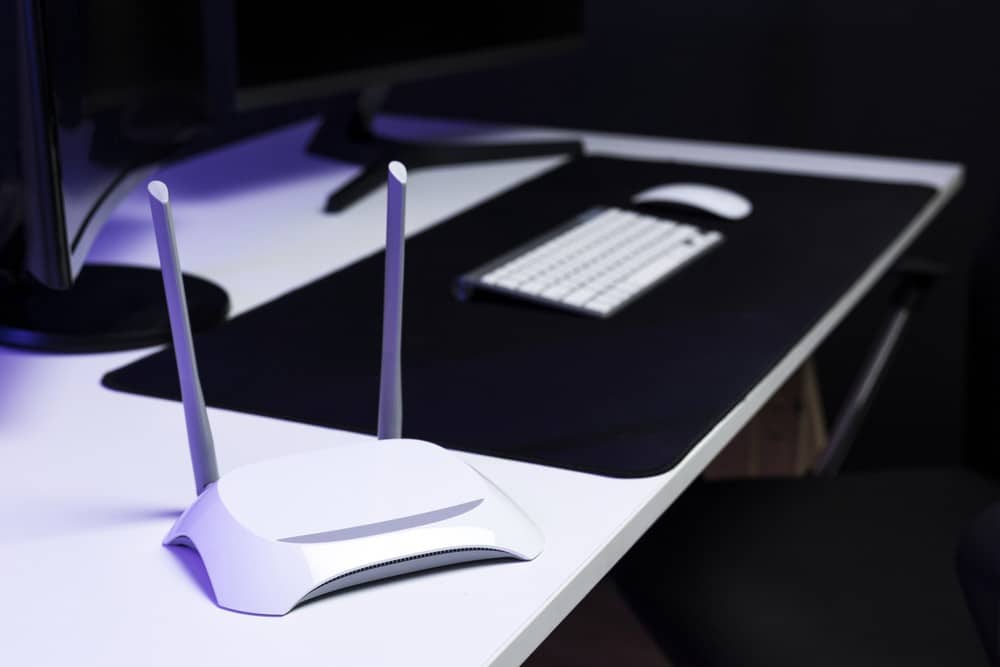


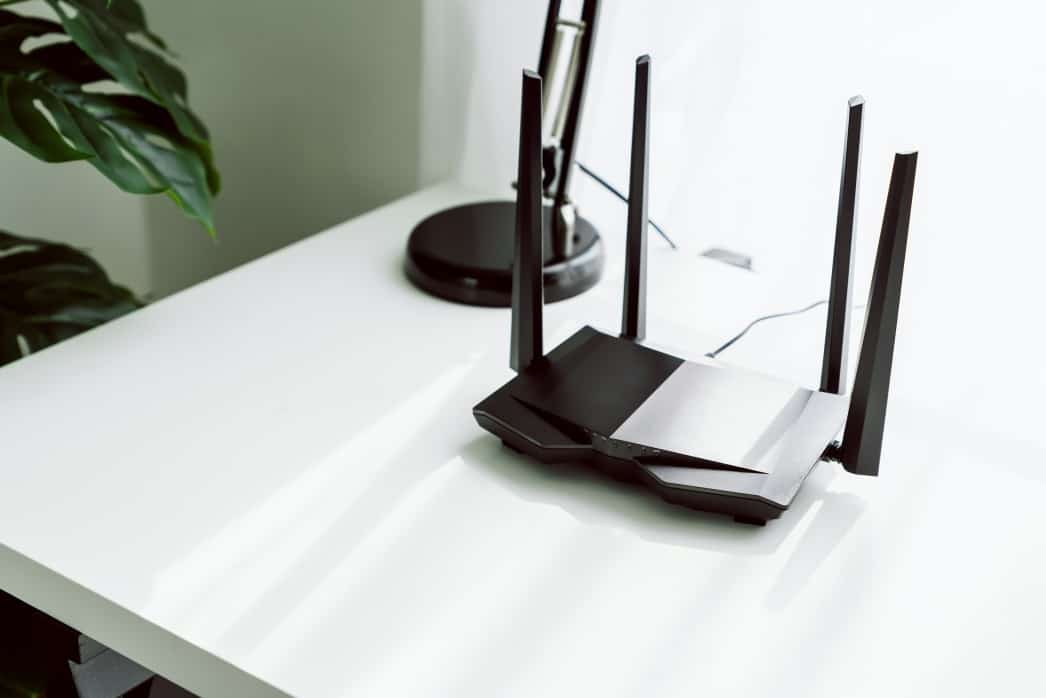
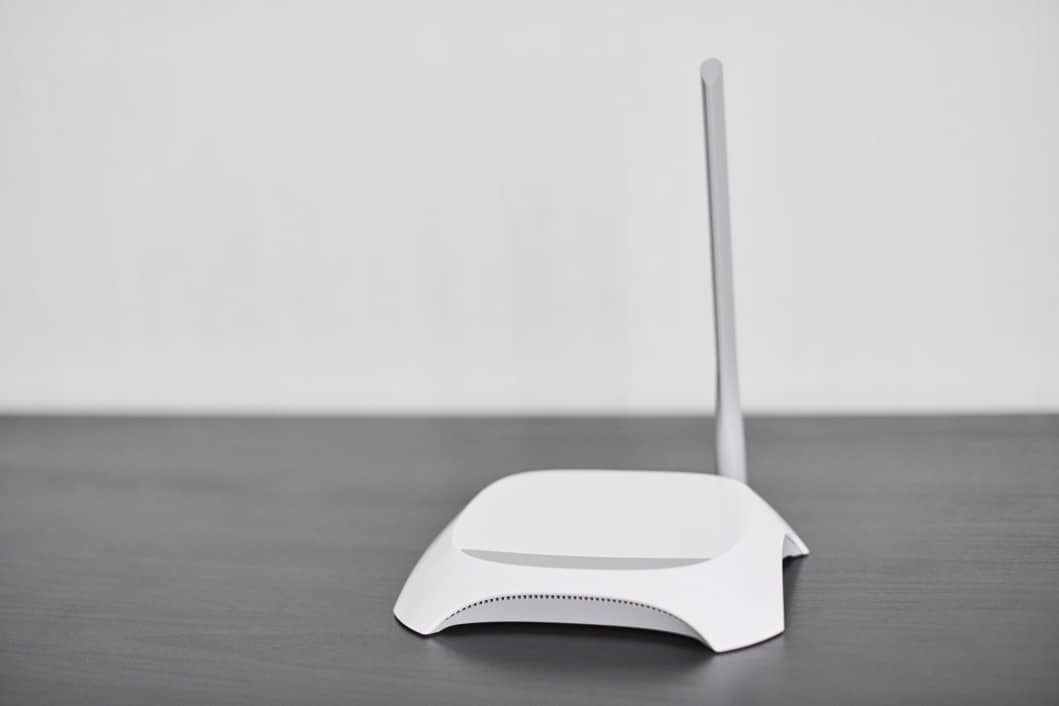
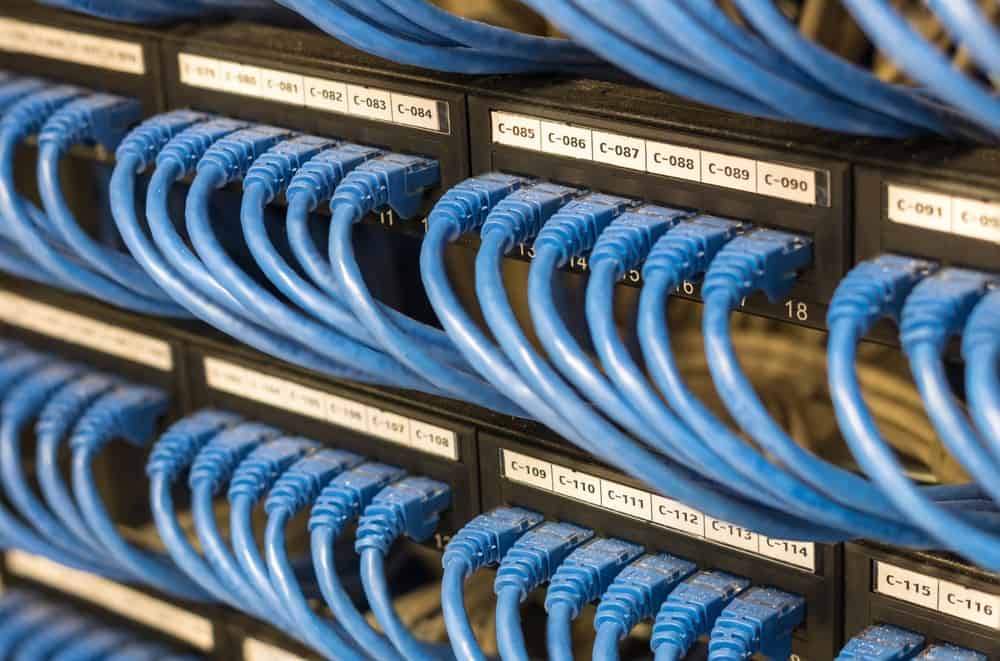


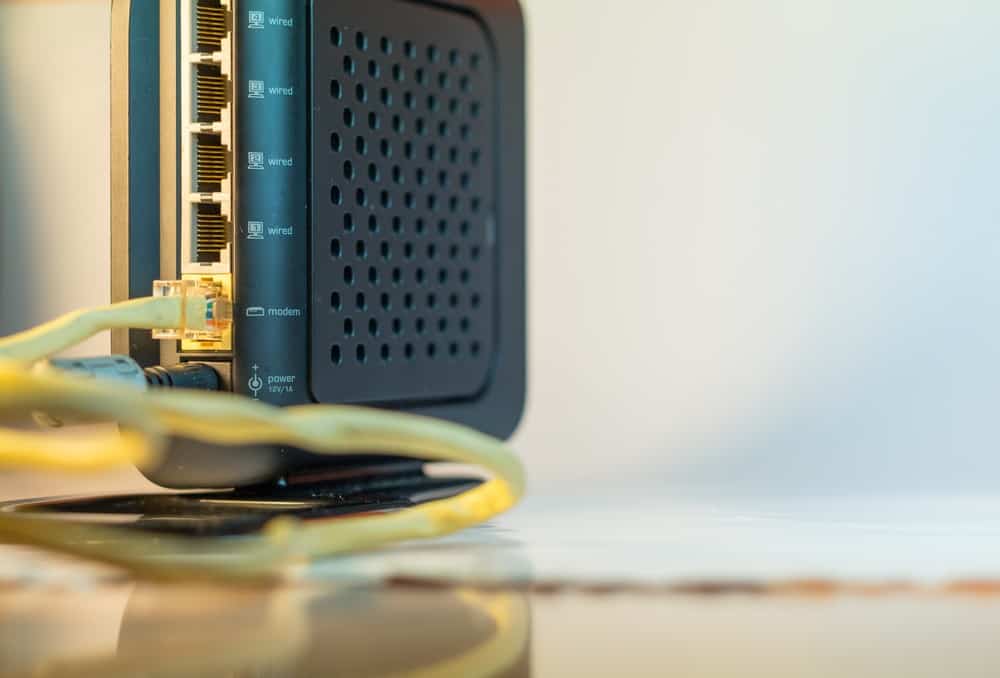

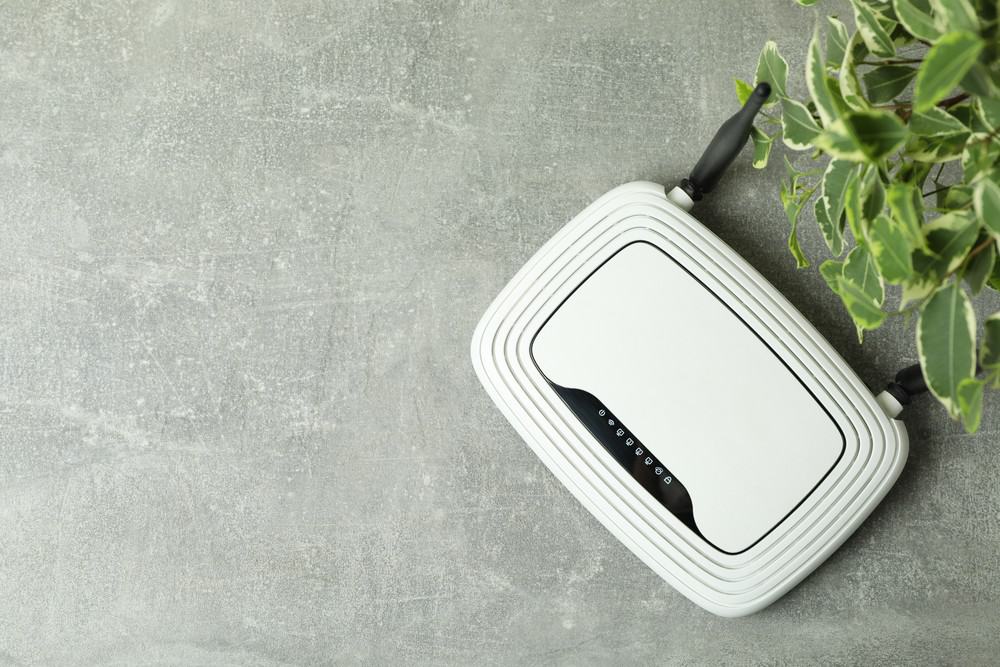
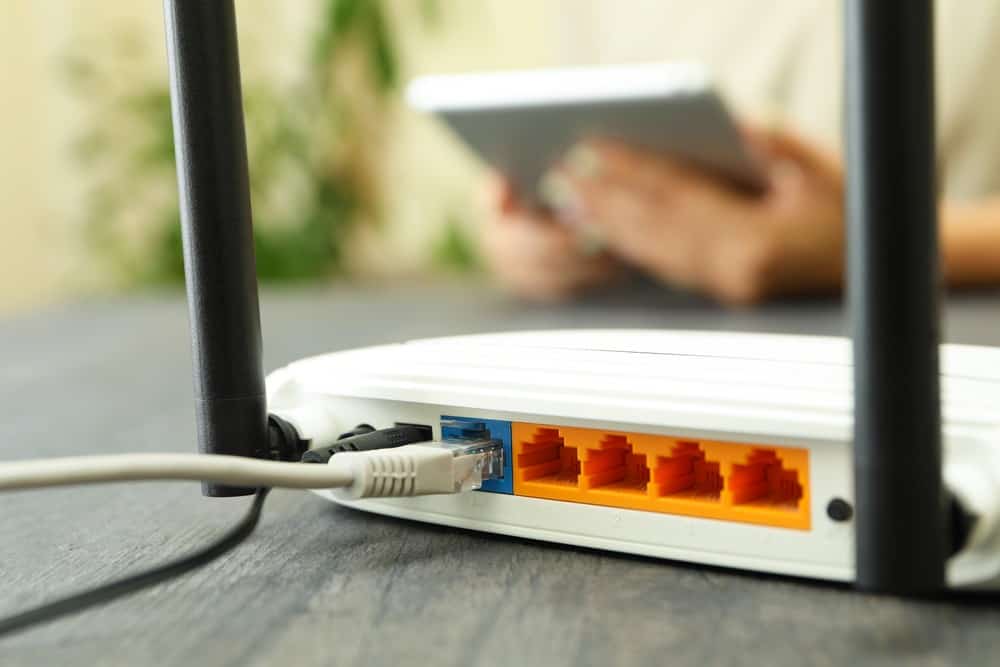
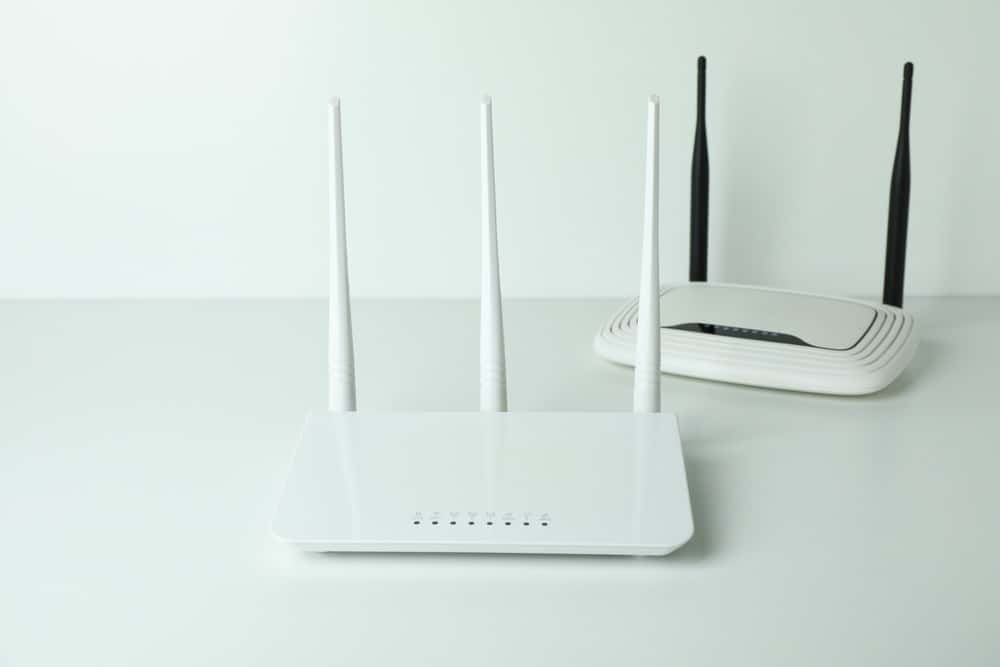


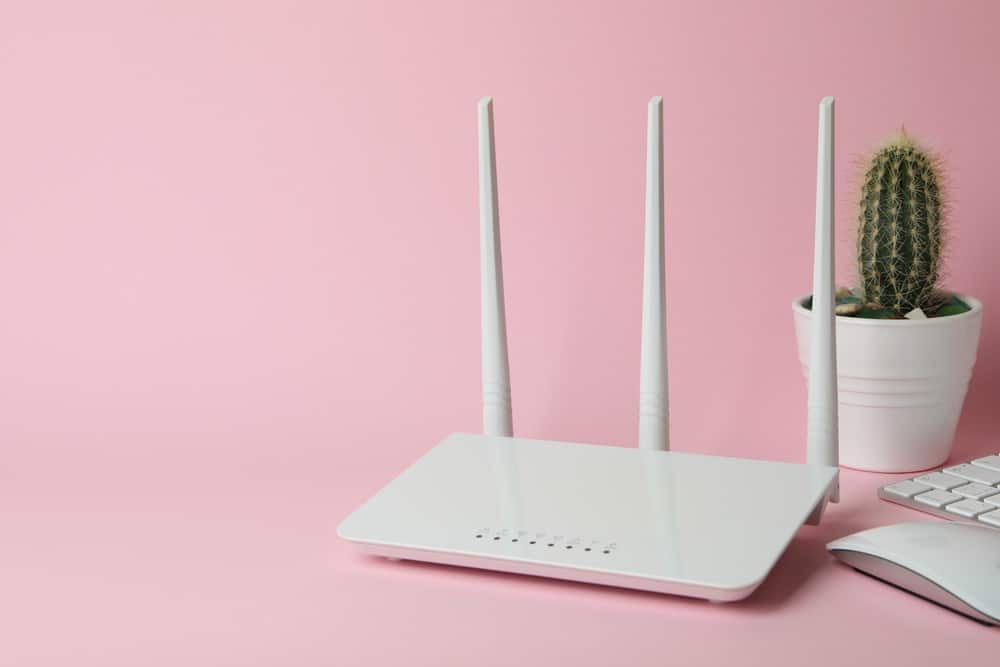
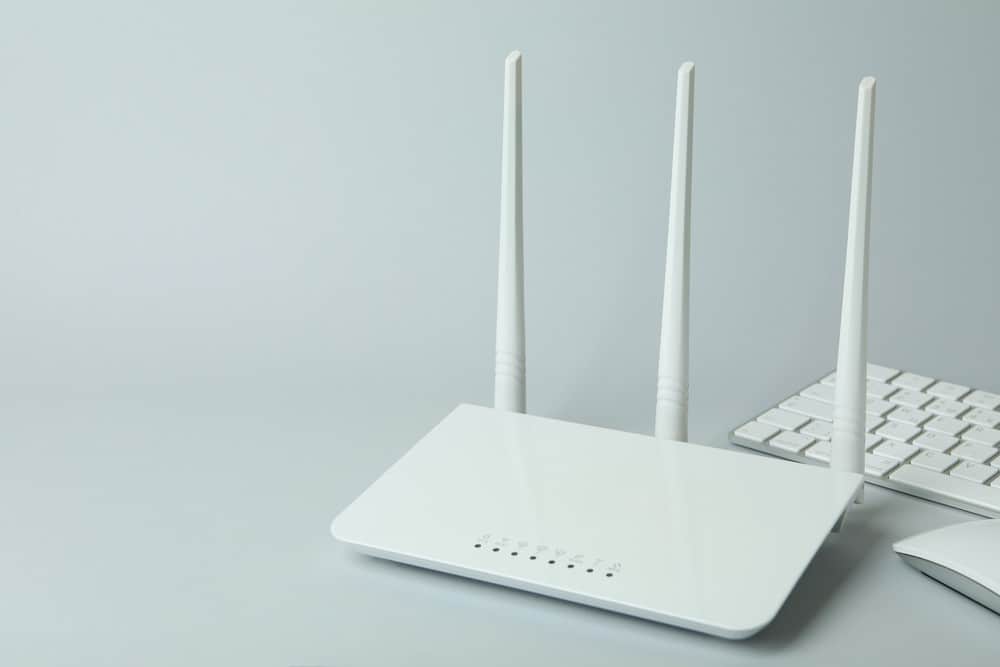
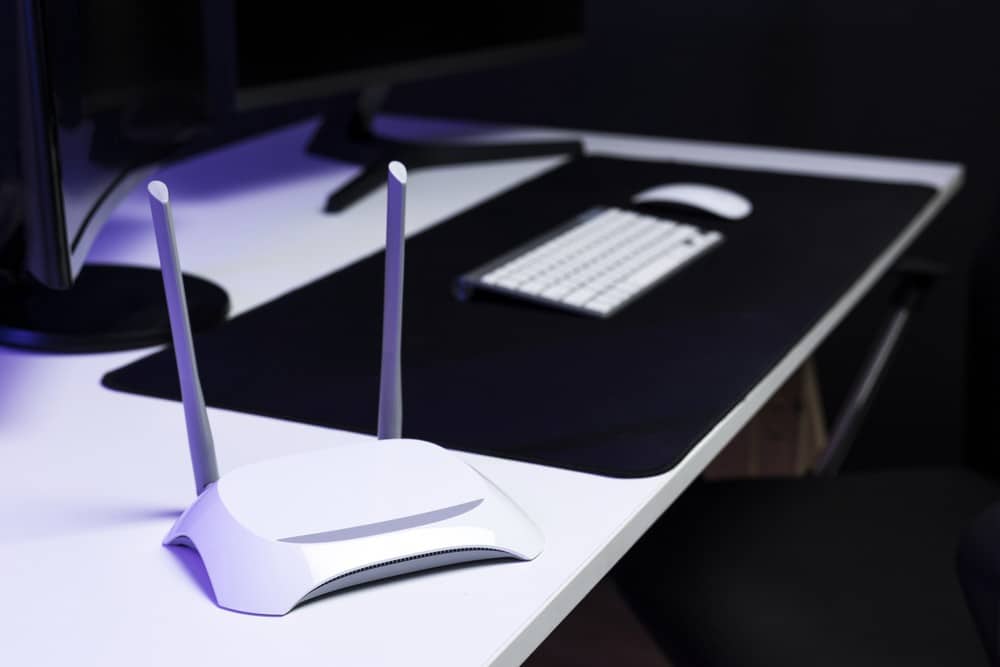

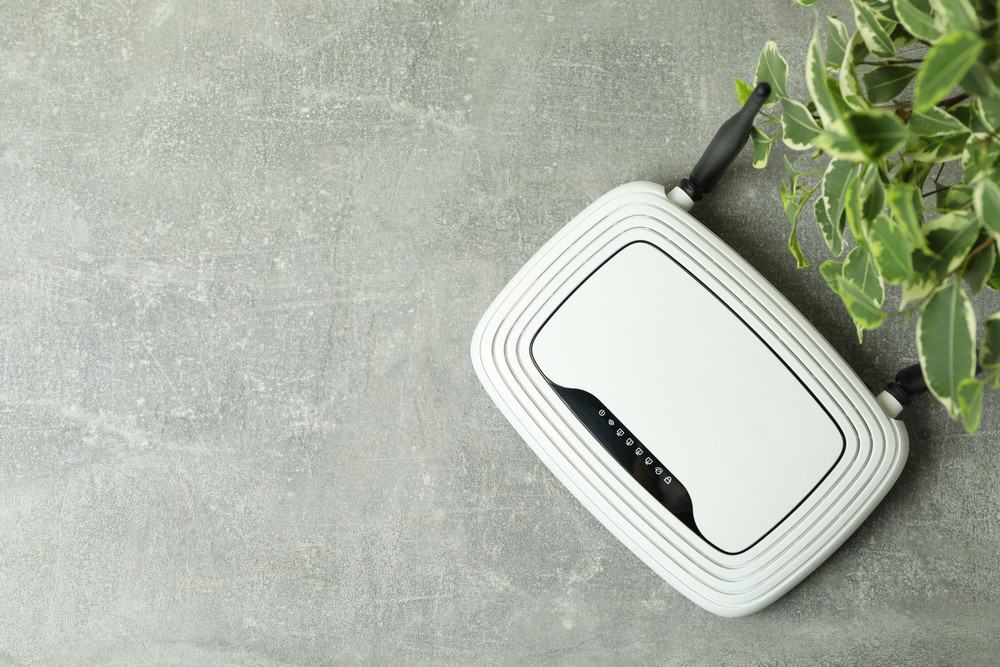
![Best BenQ Monitors in [year] 35 Best BenQ Monitors in 2025](https://www.gadgetreview.dev/wp-content/uploads/best-benq-monitor-image.jpg)
![Best Wifi Extenders For FiOS in [year] 36 Best Wifi Extenders For FiOS in 2025](https://www.gadgetreview.dev/wp-content/uploads/best-wifi-extender-for-fios-image.jpg)
![Best Fiber Optic Routers in [year] 37 Best Fiber Optic Routers in 2025](https://www.gadgetreview.dev/wp-content/uploads/best-fiber-optic-router-image.jpg)
![Best Routers for 200Mbps in [year] 38 Best Routers for 200Mbps in 2025](https://www.gadgetreview.dev/wp-content/uploads/best-router-for-200mbps-image.jpg)
![Best VoIP Routers in [year] 39 Best VoIP Routers in 2025](https://www.gadgetreview.dev/wp-content/uploads/best-voip-router-image.jpg)
![Best Routers for Optimum in [year] 40 Best Routers for Optimum in 2025](https://www.gadgetreview.dev/wp-content/uploads/best-router-for-optimum-image.jpg)
![Best Routers for Apple in [year] 41 Best Routers for Apple in 2025](https://www.gadgetreview.dev/wp-content/uploads/best-router-for-apple-image.jpg)
![Best Routers for Frontier FIOS in [year] 42 Best Routers for Frontier FIOS in 2025](https://www.gadgetreview.dev/wp-content/uploads/best-router-for-frontier-fios-image.jpg)
![Best Secure Routers in [year] 43 Best Secure Routers in 2025](https://www.gadgetreview.dev/wp-content/uploads/best-secure-router-image.jpg)
![Best Routers for Google Fiber in [year] 44 Best Routers for Google Fiber in 2025](https://www.gadgetreview.dev/wp-content/uploads/best-router-for-google-fiber-image.jpg)
![Best Routers for Cox in [year] 45 Best Routers for Cox in 2025](https://www.gadgetreview.dev/wp-content/uploads/best-router-for-cox-image.jpg)
![Best Asus Routers in [year] 46 Best Asus Routers in 2025](https://www.gadgetreview.dev/wp-content/uploads/best-asus-routers-image.jpg)
![Best Linksys Routers in [year] 47 Best Linksys Routers in 2025](https://www.gadgetreview.dev/wp-content/uploads/best-linksys-routers-image.jpg)
![Best WiFi Routers for Multiple Devices in [year] 48 Best WiFi Routers for Multiple Devices in 2025](https://www.gadgetreview.dev/wp-content/uploads/best-wifi-router-for-multiple-devices-image.jpg)
![Best Wired Routers in [year] 49 Best Wired Routers in 2025](https://www.gadgetreview.dev/wp-content/uploads/best-wired-router-image.jpg)
![Best Routers for 4K Streaming in [year] 51 Best Routers for 4K Streaming in 2025](https://www.gadgetreview.dev/wp-content/uploads/best-router-for-4k-streaming-image.jpg)
![Best Cisco Routers in [year] 52 Best Cisco Routers in 2025](https://www.gadgetreview.dev/wp-content/uploads/best-cisco-routers-image.jpg)
![Best eero Routers in [year] 53 Best eero Routers in 2025](https://www.gadgetreview.dev/wp-content/uploads/best-eero-routers-image.jpg)
